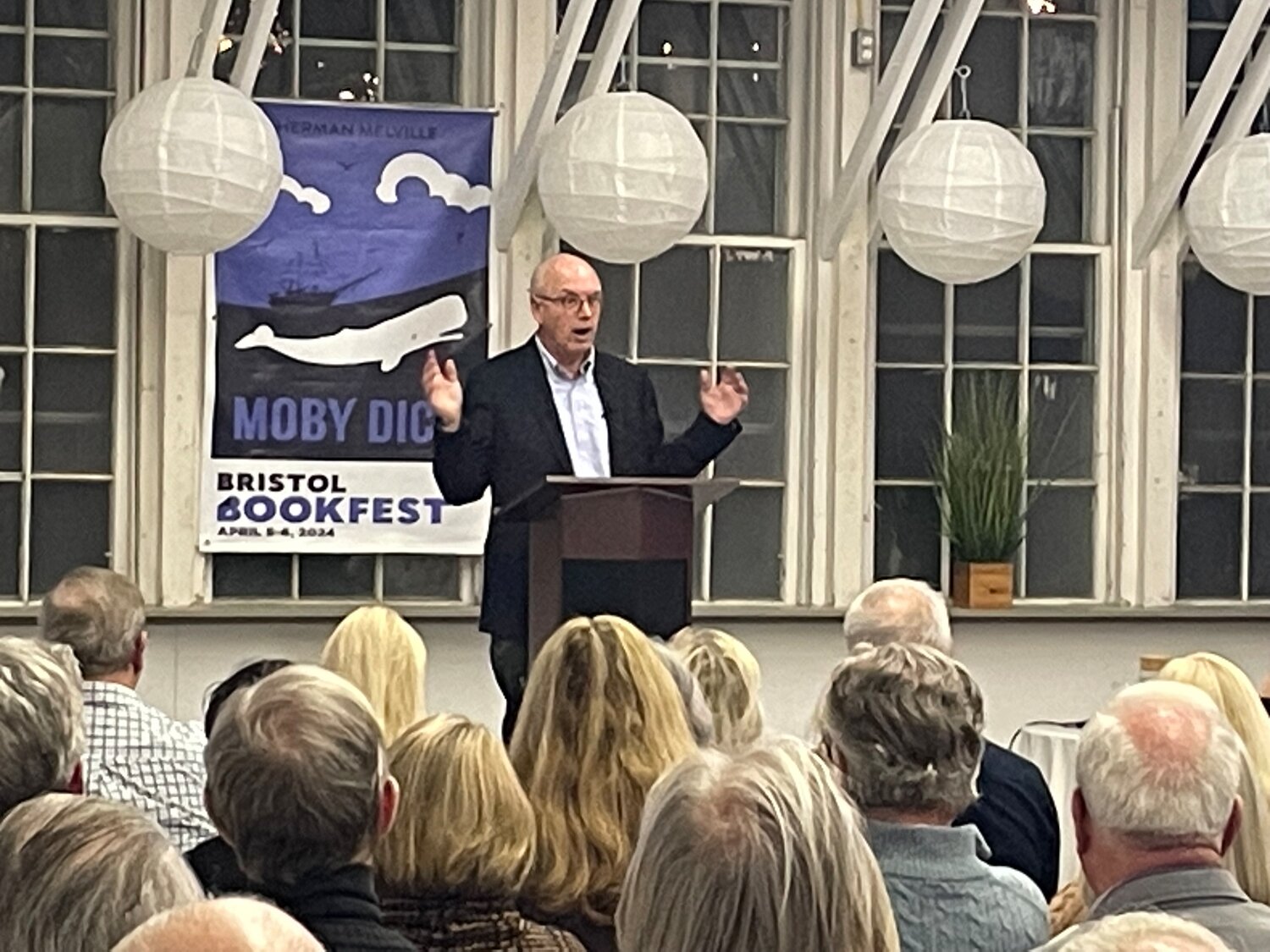‘Moby-Dick’ speaker draws full crowd at Herreshoff
Nathaniel Philbrick, an internationally best-selling author, was a highlight within a very full slate of events of Bristol BookFest 2024.
This item is available in full to subscribers.
Please log in to continue |
Register to post eventsIf you'd like to post an event to our calendar, you can create a free account by clicking here. Note that free accounts do not have access to our subscriber-only content. |
Day pass subscribers
Are you a day pass subscriber who needs to log in? Click here to continue.
‘Moby-Dick’ speaker draws full crowd at Herreshoff
Nathaniel Philbrick, the internationally best-selling author who rose to prominence following the publication of “In The Heart of the Sea”, his 2020 telling of the real-life incident that inspired Herman Melville’s Moby-Dick, was in Bristol on Tuesday, March 5. He spoke at the Herreshoff Marine Museum in a program that was certainly one of the highlights of the very full slate of events of Bristol BookFest 2024.
In his introduction, BookFest co-founder Charles Calhoun talked briefly about the work of the late David McCullough, who achieved his great success by “combining historical scholarship of the highest quality with the narrative gifts of a superb novelist and the sharp eye of a seasoned journalist.”
“I think I am correct in saying…that Nathaniel Philbrick is David McCullough’s worthy successor – the writer who carries on his legacy of producing books that blend scrupulous research and deep historical insight with the ‘I-can’t-put-this-down’ appeal that most academic historians must envy.”
Since the great success of “In The Heart of the Sea”, Philbrick has collected countless accolades and honors for a series of best sellers on topics from the Mayflower to Little Big Horn to the Battle of Yorktown. But for the noted author (and entertaining speaker), all roads lead back to Melville. This is even true of Philbrick’s own body of work, as he returned to the topic with his 2011 book “Why Read Moby-Dick?”, described as a “cabin master’s tour of a spellbinding novel rich with adventure and history….A perfect match between author and subject.”
Moby-Dick, and Melville, may have no greater fan than Philbrick; in the hour he spent at the podium Tuesday, he examined the interconnectedness of many threads of American History, Melville, his own work, and indeed, Bristol itself.
As a child summering with grandparents in West Falmouth from his home in Pittsburgh, he remembers being captivated by a copy of the Herreshoff biography, “The Wizard of Bristol”. He found himself back in Bristol (in spirit) while writing “Mayflower”, considered the definitive work on the topic of that time, much of which is devoted to King Philip’s War. And Bristol played a role in Melville’s backstory as well, when he spent time as a child visiting his aunt Mary and uncle John “Nor’west” deWolf, an explorer who earned mention in two of Melville’s books, including Moby-Dick.
“Eternally relevant,” Philbrick called Moby-Dick. “It’s in the DNA of this country, written in the midst of a 19th century crisis,” a few years before the outbreak of the Civil War. Melville’s connections appear and reappear in Philbrick’s work.
“Melville serves as my North Star,” he said, telling how Melville connections turn up in his research constantly, whether discovering that Benedict Arnold saved Melville’s grandfather during the revolution, before he broke bad (Maria Gansevoort Melville was born in 1791 — would there be a Moby-Dick without a Benedict Arnold?); or revealing that the coast of San Francisco is littered with the wrecks of whaling ships, taken by crews abandoning whaling ports like New Bedford to sail to find their fortune in the California Gold Rush.
“I was harpooned,” he said, of the first time he read Moby-Dick’s iconic opening “Call me Ishmael.” He has since read it 12 more times, and insists it’s a new book every time. Noting that most of us were made to read it too young, he presented a strong case for picking it up again and seeing it anew.
“The past hasn’t changed, our view of it has,” he said. “It’s a book about a whaling voyage that contains everything that’s going on in the world at the time…He wasn’t just writing about a whaling voyage, he was writing about what it was like to be alive in 1850.”
For more about BookFest and how you can share Philbrick’s enthusiasm for the book he considers “the greatest American novel ever written,” visit bristolbookfest.com.






